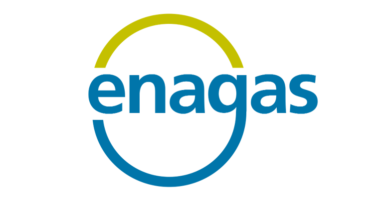30 July 2020
The EU will allocate around 27 million euros to the start-up of two projects in Spain through the Connect Europe CEF (Connecting Europe Facility) mechanism, which promotes more sustainable and efficient transport. Specifically, the European Commission will support, among others, the development of two new projects for the supply of liquefied natural gas (LNG) to ships –bunkering- in the ports of Barcelona and Algeciras, coordinated by Enagás
These projects will be developed in the ports of Barcelona and Algeciras
• Enagás has coordinated the presentation of these projects to the call for applications to Connect Europe (CEF), which are part of the institutional strategy 'LNGhive2', promoted by Puertos del Estado
• These aids represent Europe's recognition of the role played by liquefied natural gas (LNG) in decarbonizing the maritime sector and improving air quality in ports.
• Up to June 2020, 297 LNG supply operations have been carried out to ships in Spain, triple the number in the same period last year

The partners of these initiatives are Enagás, Scale Gas -a subsidiary created through its Enagás Emprende program-, Knutsen and the Port Authorities of Barcelona and Bahía de Algeciras.
These projects are part of the institutional strategy 'LNGhive2', led by Puertos del Estado, in order to promote the development of the LNG market as maritime fuel and guarantee supply in ports, in compliance with Directive 94/2014 on fuels alternative.
Natural gas in the decarbonization of maritime transport
These new aids represent a recognition by Europe of the role that natural gas, and specifically LNG, will play in the decarbonisation of the maritime sector. With the funds from the CEF mechanism, which has supported a total of eight projects in Spain in its last call, it will help to achieve the climate objectives established by the European Green Pact.
To reduce emissions from ships in ports, the EU gives priority to short sea shipping projects with alternative fuels and the installation of onshore power supply systems.
The initiatives, proposed under the 'LNGhive2' strategy, will contribute to consolidating Spain's position as a European benchmark in LNG bunkering, and are in addition to the developments for small-scale supply and the adaptation of infrastructures and logistics that are already underway with the project 'CORE LNGas hive'.
Spain's seven regasification plants are already adapted to supply LNG in transport, as are some ports, barges and tugboats, port cranes and trains.
Sustainable mobility
LNG is, today, the best alternative to advance in the decarbonization of maritime transport. It is a fuel that allows compliance with the regulation of the International Maritime Organization (IMO), which in January 2020 established the limit of sulfur content in fuel at 0.5%.
Compared with traditional fuels, LNG eliminates emissions of sulfur oxides (SOX) by 100%, between 80 and 90% of nitrogen oxides (NOX) and between 20 and 30% of CO2. With the use of LNG as maritime fuel in Spain, around 2 million tons of CO2 will be reduced between now and 2030, which would be equivalent to the introduction of more than one million electric vehicles on the market.
Bunkering operations in Spain
Until June 2020, bunkering operations in Spain have tripled compared to the same period last year (89 operations in 2019 and 297 in 2020) and the volume of LNG supplied has almost doubled (38,663 m3 in 2019 and 62,837 m3 in 2020).
According to the DNV / GL certifier, there are 169 LNG-powered vessels operating in the world, 222 on request and 126 that are called “LNG ready”. In addition, of the 15 barges that currently supply LNG in the world, six have operated in Spain in recent years, reinforcing the country's role in supplying LNG to ships from trucks, ships or terminals.
All this has been possible thanks to the developments and advances of the public / private initiatives 'CORE LNGas hive' and 'LNGhive2', co-financed by the European Commission, in which 49 partners participate, 21 public, including 13 port authorities and 28 private or industrial.

